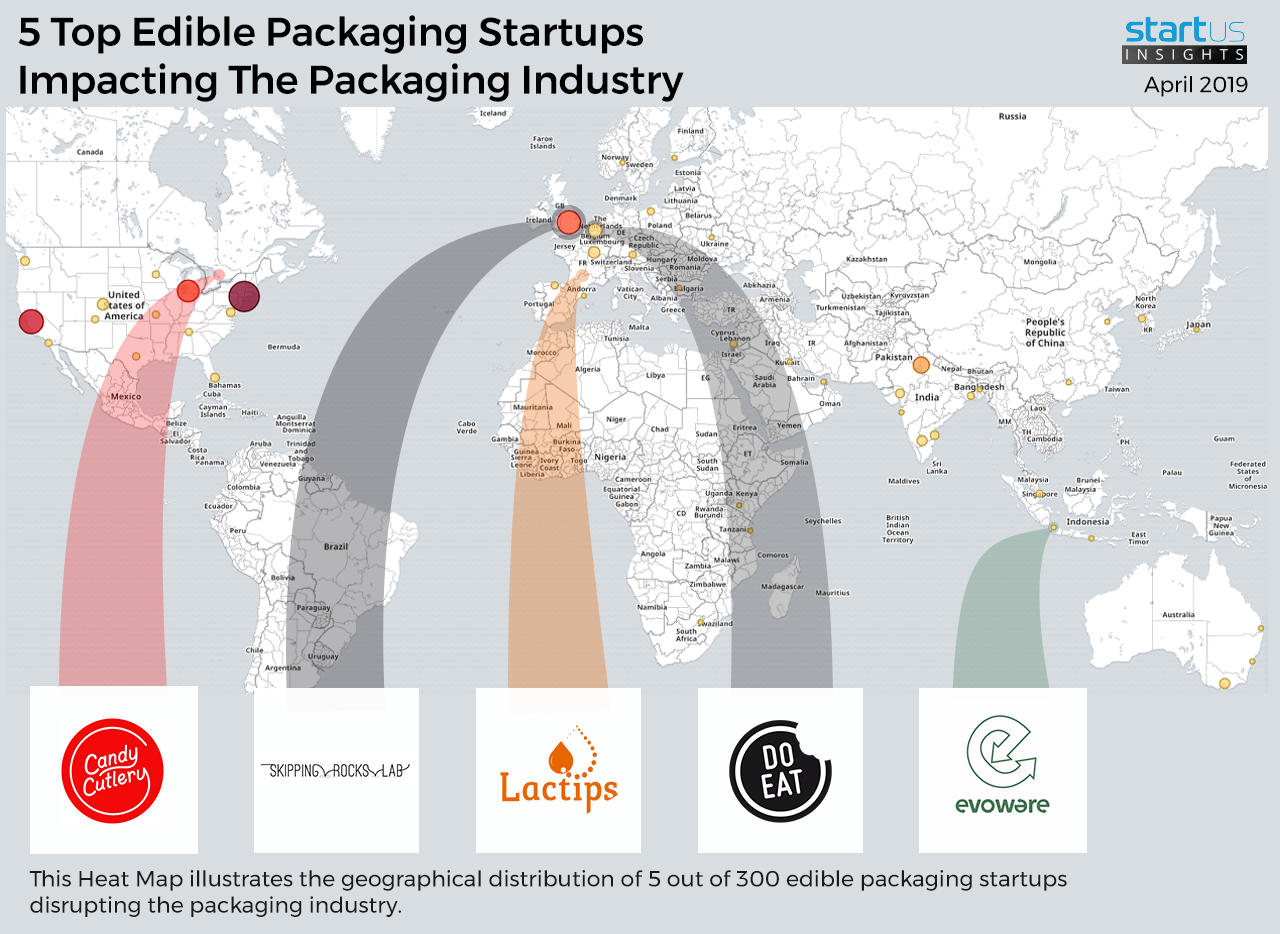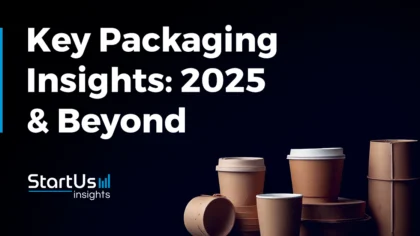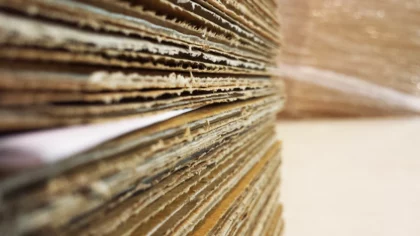Our Innovation Analysts recently looked into emerging technologies and up-and-coming startups in the packaging industry. As there is a large number of startups working on a wide variety of solutions, we decided to share our insights with you. This time, we are taking a look at 5 promising edible packaging solutions.
Heat Map: 5 Top Edible Packaging Startups
For our 5 picks of edible packaging startups, we used a data-driven startup scouting approach to identify the most relevant solutions globally. The Global Startup Heat Map below highlights 5 interesting examples out of 300 relevant solutions. Depending on your specific needs, your top picks might look entirely different.
Skipping Rocks Lab – Disappearing Package
Disappearing package is ideal for foods and is made of sustainable and flexible materials such as natural extract (corn, seaweed, agave, sugar, and others). These materials degrade in a natural environment in a few weeks on average and they are edible. No need to worry about special recycling conditions, or even throwing it in a garbage bin. Skipping Rocks Lab is a London-based startup that develops natural, biodegradable packaging materials made from seaweed and other plant materials to tackle plastic pollution. Their product, Ooho, is a natural, flexible packaging for liquids that biodegrades in 4-6 weeks and can even be eaten.
Evoware – Seaweed-Based Packaging
Seaweed-based packaging is a way to replace conventional packaging in a convenient and healthy way. Algae are an especially eco-friendly raw material since their production requires neither fertilizer nor chemicals. And during growth, they also absorb CO2. Indonesian startup Evoware develops an eco-friendly, biodegradable and edible packaging that uses seaweed as their main material. It fits for both food products and non-food based content.
Do Eat – Potato-Waste Based Packaging
Developed exclusively from the potato industry’s residues (such as potato peel and wash water), the bioplastic aims to be an effective alternative to synthetic plastic. In addition to being biodegradable, the compounds of the potato-based bioplastic promote enhanced food preservation when compared to traditional plastics. Belgian company Do Eat offers an alternative to disposable plastic by producing containers and packaging that are edible and/or highly compostable as they are based on potato and beer waste.
Lactips – Casein-Based Packaging
Casein is a protein found in milk and can be used as an edible wrapping product similar to a plastic wrap. Combined with an alkali compound, casein film protects food from oxygen 500 times better than petroleum-based wrappings and is resistant to humidity, temperature, and moisture. French startup Lactips produces water soluble and biodegradable thermoplastic pellets based on milk protein. Varieties of this product can be used in several industrial applications, varying from food to cosmetics and even medical, detergent, agrochemicals, etc.
Candy Cutlery – Sugarcane-Based Materials
Companies are developing edible utensils made with 100% natural sugar in an effort to reduce plastic waste. Canadian Candy Cutlery makes dessert spoons and small glasses made of 100% natural cane sugar. The products are free of artificial sweeteners and can be used either as ice cream dishes or shot glasses. Candy Cutlery’s spoons are available in coffee, vanilla, strawberry, and peppermint flavors — and the packaging is 100% recyclable.
What About The Other 295 Edible Packaging Solutions?
While we believe data is key to creating insights it can be easy to be overwhelmed by it. Our ambition is to create a comprehensive overview and provide actionable innovation intelligence for your Proof of Concept (PoC), partnership, or investment targets. The 5 edible packaging startups showcased above are promising examples out of 300 we analyzed for this article. To identify the most relevant solutions based on your specific criteria and collaboration strategy, get in touch.









